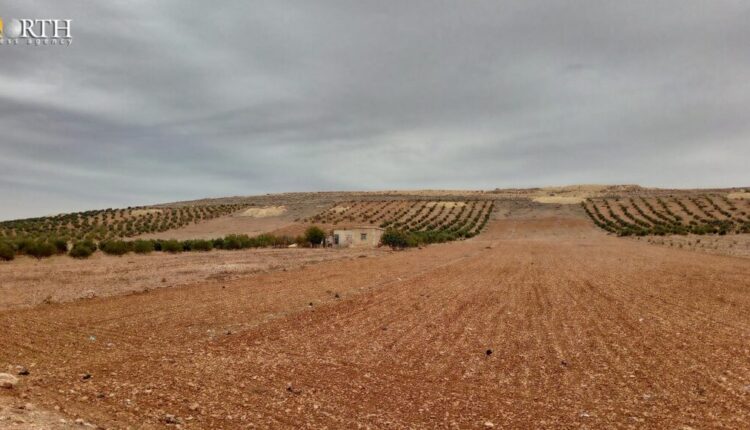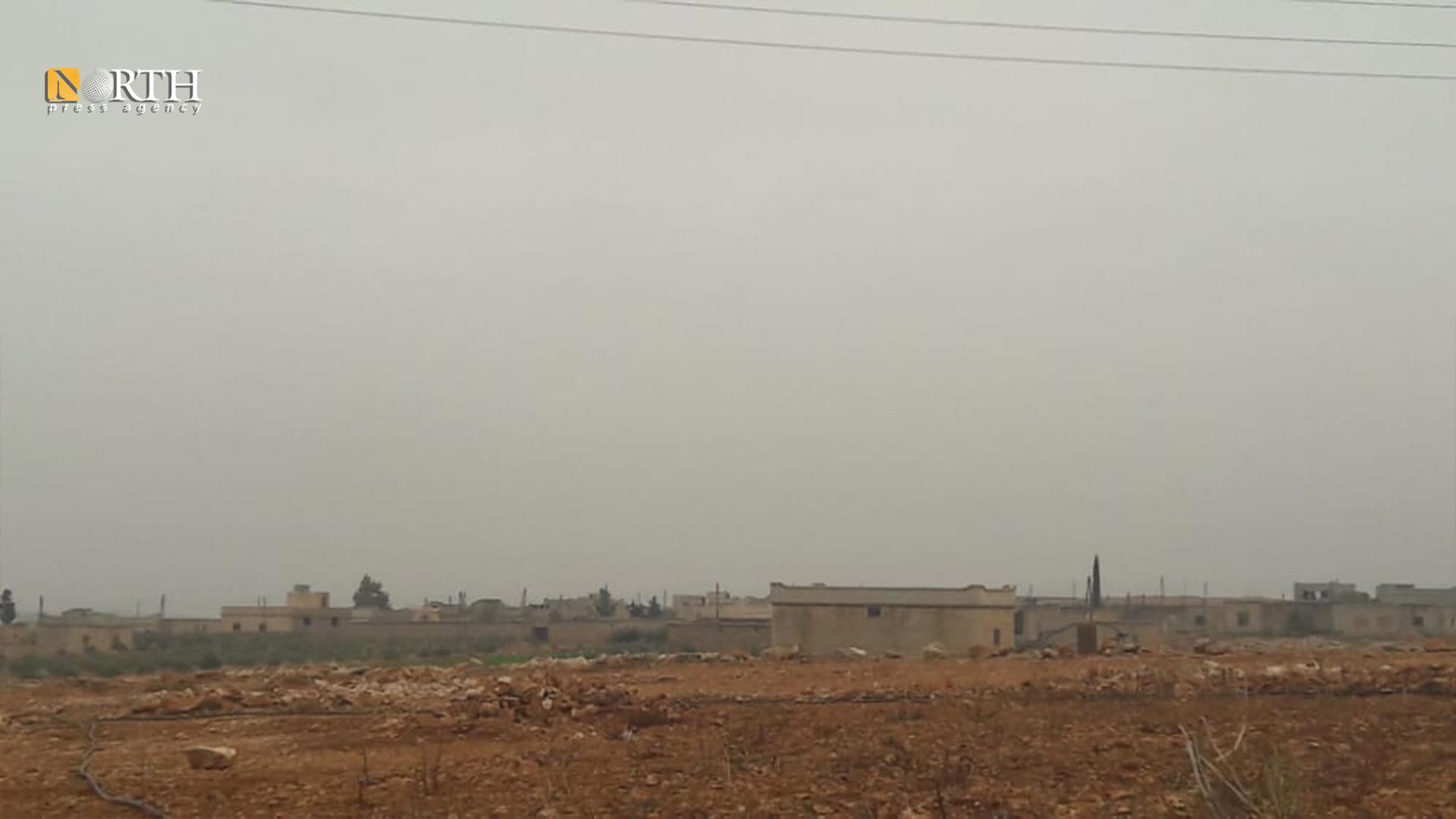
MANBIJ, Syria (North Press) – Farmers in the city of Manbij and its countryside in northern Syria plant their lands with wheat without being certain if they will harvest them or not.
Issa al-Jamil, 36, from the village of al-Yalinli in the northwestern countryside of Manbij, hopes the Turkish shelling of the area decreases so that the high expenses he spent on his farmland will not go to waste.
The village of al-Yalinli, along with other villages, lies on the lines of contact between the Manbij Military Council, affiliated with the Syrian Democratic Forces (SDF) on one hand, and the Turkish forces and their affiliated armed opposition factions, known as Syrian National Army (SNA), on the other.
The farmers, whose farmlands lie on the lines of contact, fear their crops will burn as a result of the Turkish shelling so that they will be deprived of their only source of livelihood.
Al-Jamil fears the sound of the shelling and missiles hitting the farmlands. His fear of an expected tragedy grows every day.

The villages on the lines of contact are subjected to repeated and random shelling by the Turkish forces and their SNA factions using mortar and artillery shells, in addition to live ammunition.
The city of Manbij, east of Aleppo, is one of the most important industrial centers in northern Syria, as it is a transportation hub and sits on a commercial road linking the Autonomous Administration held areas with those of the Syrian government, in addition to opposition-held areas in northern Syria.
The Syrian Democratic Forces (SDF) supported by the US-led Global Coalition to Defeat ISIS liberated Manbij from ISIS in 2016 following fierce battles.
Following its liberation from ISIS, the Arabs, Kurds, Circassians, and Turkmen, who constitute the fabric of Manbij, established their own administration under the name of the Democratic Civil Administration of Manbij and its Countryside to run the affairs of their region. Then, this administration joined the Autonomous Administration of North and East Syria (AANES).
Al-Jamil, like the rest of the people of the villages, demands the international community and humanitarian organizations stop the Turkish attacks on them and all the Syrian territories.
Ever since the recent Turkish escalation in north and northeast Syria and the threat to launch a ground military operation, the people of the villages on the lines of contact fear the ground attack and large-scale displacements, as well as the loss of their lands and property.
On Nov. 20, the Turkish air force launched intense airstrikes on several areas of north and northeast Syria on the Syrian-Turkish border in addition to bombarding areas that are more than 40 km away from the border such as the Global Coalition military base and Hawl Camp in Hasakah and the village of Makman in the northern countryside of Deir ez-Zor.
The indiscriminate and sporadic shelling makes Khaled al-Ahmad hesitant to plant his land.
Khaled al-Ahmad, 47, from the village of al-Kawikly in the west of Manbij, said the majority of the shells hit the farmlands of the village preventing him from working on his crops.
He added, “Since our village has become on the lines of contact, we never had a quiet day, we live in fear. Sometimes we fear for ourselves and children, and sometimes for our livelihood and crops not being safe from the Turkish shelling.”
In 2017, villages in Manbij came between the Manbij Military Council and the armed opposition factions. Military bases for the Turkish forces were established that overlook those villages which are often targeted following the so-called “Euphrates Shield” operation.
Al-Ahmad, like the majority of the people of al-Kawikly, relies on farming for making a living, however, the Turkish shells almost deny them their only source of livelihood.
The Turkish shelling causes losses to the farmers. The shells cause great fires to sweep through wide spaces of wheat farmlands.
Haloum al-Abd, 32, from the village of Qurt Weran in the west of Manbij, is a widow who is raising orphan children, and relies on farming and planting her land after her husband passed away. However, she is fearful because of the possible Turkish operation of the farmlands.
With the sound of the shelling, al-Abd goes out to see if the shells hit her land or not. As days pass by, her concerns grow more and more, especially because the Turkish shelling burned her harvest last year.
